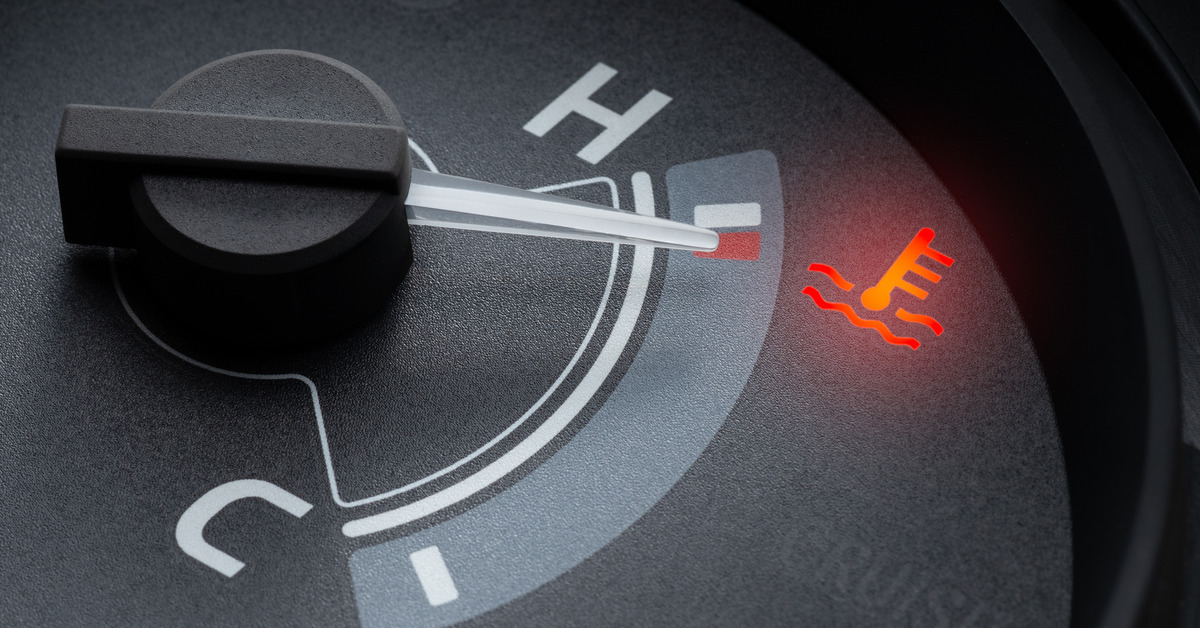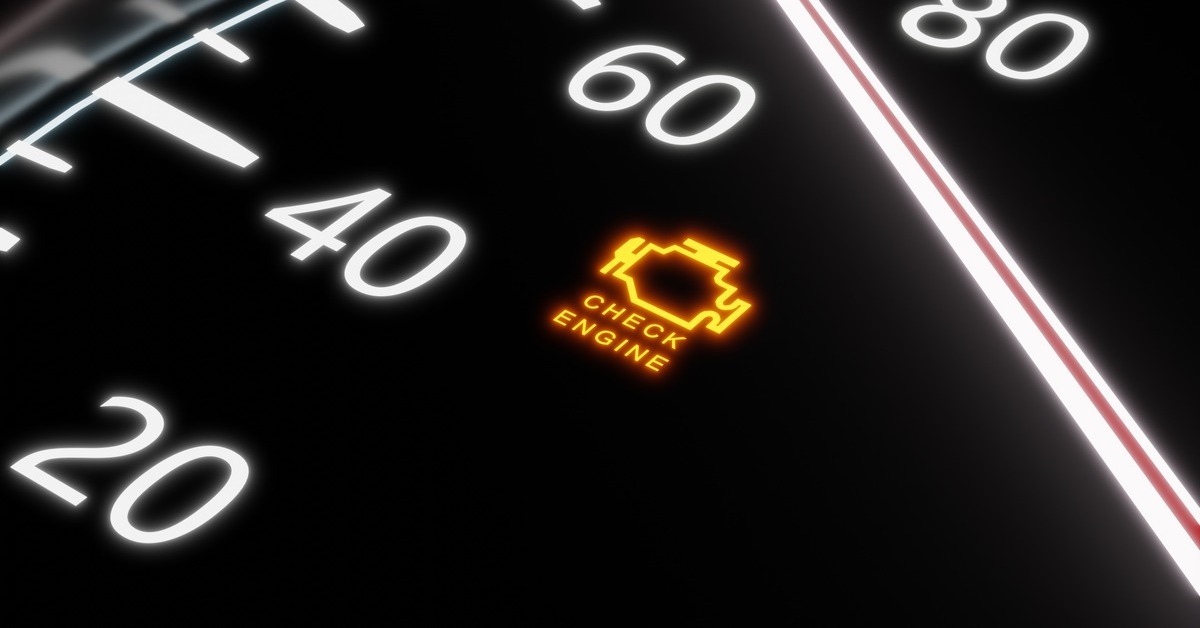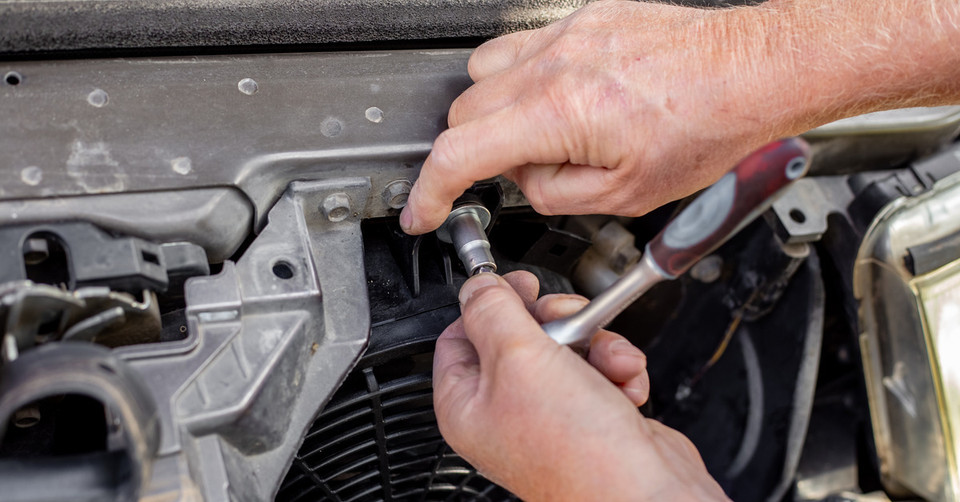The cooling fan plays a crucial role in maintaining the optimal operating temperature of your vehicle’s engine. Ignoring symptoms of a cooling fan malfunction can lead to costly repairs and potential breakdowns on the road. If you suspect an issue with this component, look out for these symptoms of a cooling fan malfunction to keep your cooling fan running efficiently.
1. Your Engine Overheats
When a cooling fan malfunctions, it fails to effectively regulate the engine’s temperature, causing the engine to overheat. This issue could be attributed to:
- Broken fan motor
- Electrical issues
- Physical obstructions
An overheating engine can lead to severe damage, such as warped cylinder heads or a blown head gasket. Monitor your vehicle’s temperature gauge and pay attention to warning lights that may indicate overheating. These lights are some of the most obvious signs of a cooling fan issue, and you should not ignore them. Regular cooling system checks, including the fan, can pinpoint this problem early, allowing for timely repairs before extensive damage occurs.

2. The Temperature Gauge Is Always High
A malfunctioning cooling fan may cause the temperature gauge to consistently read high, even when the engine isn’t technically overheating. This malfunction could be due to the fan not engaging at the correct temperatures or running at reduced speeds from wear and tear. The consistent high reading can indicate that the fan isn’t providing the necessary cooling aid to the engine.
Compare the gauge reading with the actual engine temperature to determine if the fan is the root cause. Keeping an eye on the temperature gauge can be a proactive measure to keep the fan functioning properly and help you avoid costly repairs in the future.
3. Loud Noises From the Engine Bay
If you notice strange noises emanating from your engine bay, such as grinding, rattling, or clicking, it might indicate a problem with the cooling fan. These noises can result from worn-out parts like bearings or fan blades encountering other components. Engine bay noises are often more noticeable when the fan attempts to start or stop. If you ignore these sounds for too long, the problems can lead to more significant mechanical failures, necessitating expensive repairs or replacements.
4. Burning Smell
A burning smell coming from your vehicle can be a sign of an overheating engine, which may be due to a faulty cooling fan. The burning odor might be from overheated engine components such as hoses and belts, or from melting insulation that surrounds electrical wires, which could lead to electrical issues within the engine. Address these issues immediately, as they could signal more serious problems like a complete engine breakdown or even a fire hazard.
5. Coolant Leaks
Spotting coolant leakage near the radiator or water pump might suggest a malfunctioning cooling fan. A faulty fan could cause excessive pressure on these components, leading to leaks. These leaks could stem from the fan not cooling the engine and radiator effectively, causing them to overheat and the coolant to expand and leak from overflow points. Protect your vehicle’s coolant system by regularly inspecting all components so you can spot leaks early on and take care of them before they turn into larger issues.
6. The Fan Won’t Turn On
If your cooling fan doesn’t turn on, it can result in engine overheating, as the necessary airflow to cool the engine isn’t there. You may have a blown fuse, a faulty fan relay, or problems with the fan motor itself. To check, run your vehicle and observe if the fan activates after a few minutes when the engine reaches operating temperature. This simple test can prevent further complications from an overheated engine, such as damage to the engine block or pistons.
7. Reduced Air Conditioning Performance
The cooling fan plays a role in dissipating heat from the engine and radiator, which affects the performance of your air conditioning system. If your AC isn’t blowing cold air as it should, it could be due to a faulty cooling fan not removing heat effectively from the condenser.
Inspecting the fan for operational issues, such as electrical faults or physical damage, could breathe life back into your AC system and keep everything working efficiently, especially during warm weather. Regular maintenance and inspections keep your cooling and air conditioning systems running.

8. The Check Engine Light Is On
A failing cooling fan can trigger the check engine light on your dashboard. This warning light serves as an early alert system, indicating a range of possible engine problems, including those related to the cooling system. When the check engine light appears, get a mechanic to check your vehicle and provide a proper diagnosis. Ignoring this light can lead to further complications, potentially causing long-term damage to the engine that may require expensive repairs.
9. Irregular Fan Speed
A properly functioning cooling fan should run at a consistent, smooth speed, adapting to the engine’s cooling needs without abrupt changes. If the fan runs at irregular speeds or stops abruptly, it may indicate an electrical or mechanical malfunction, potentially leading to insufficient cooling and engine overheating. Irregular fan speeds could stem from problems with the:
- Fan motor
- Electrical connections
- Cooling fan relay
Address these irregularities to maintain engine health and prevent overheating.
10. The Engine Runs Hot While Idling
If your engine temperature rises when idling, it could be because the cooling fan isn’t providing adequate airflow, especially during periods of stillness. This problem might be more apparent in stop-and-go traffic, where the vehicle relies more heavily on the cooling fan due to the lack of natural airflow. Addressing fan performance during idling can prevent overheating and maintain engine efficiency, keeping your vehicle in top condition for longer.
11. Decreased Fuel Efficiency
A malfunctioning cooling fan can also affect your vehicle’s fuel efficiency. The engine must work harder to maintain its operating temperature, leading to increased fuel consumption as it compensates for the lack of proper cooling. This additional effort can result in higher fuel costs and increased emissions, impacting your budget and environmental footprint. Addressing cooling fan problems maintains optimal fuel efficiency, reducing fuel costs and emissions.
Pay attention to these symptoms of a cooling fan malfunction and address them promptly before they escalate into more severe issues. Regular maintenance and inspections can prevent cooling fan problems. If you experience any of the above symptoms, don’t hesitate to pick up some replacement AISIN auto parts from us at Yota Shop. We’re here to help you avoid costly repairs and engine failure!

